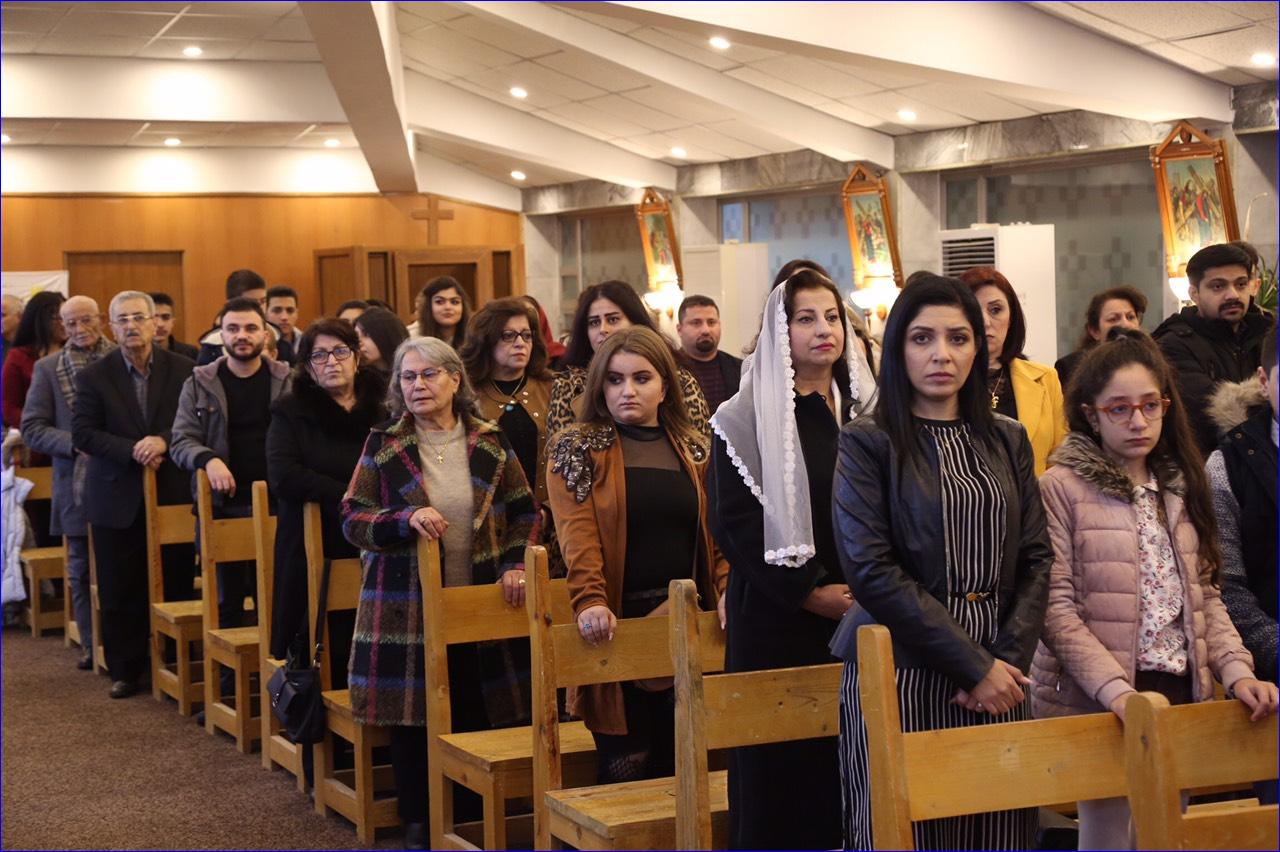Christians filled churches in the city of Qaraqosh, southeast of Mosul, on Christmas eve to celebrate the holiday for the second year after their community was liberated from ISIS. At the Grand Immaculate Church, the hall was packed with worshipers and priests conducted prayers. It was one of many Christian communities in Iraq and throughout the Middle East celebrating the holiday with hope that the wave of extremist anti-Christian violence had subsided.
Iraq’s Christian community has faced difficulties in recent years, with waves of Islamist extremist terror and kidnappings, especially after 2003. Many emigrated. When ISIS attacked in 2014, the Christian towns of Nineveh were destroyed and their residents forced to flee to the Kurdish autonomous region, where many then decided to search for a life elsewhere. However, a glimmer of hope appeared in October 2016 when ISIS was driven out of Nineveh plains and Christian cities like Qaraqosh, once home to some 50,000 people, and smaller towns nearby, were retaken. Last year, some Christians returned to Qaraqosh to conduct holiday services. Qaraqosh is an important symbol because it was the largest Christian majority urban area in Iraq. In other cities, such as Baghdad, Christians are a small minority, but Qaraqosh is a bellwether for the possibility that Christian communities in Iraq can rebuild and thrive.
This year, the Fraternite en Irak, an association that helps religious minorities who suffered violence in Iraq, and which has helped rebuild Christian sites, celebrated in Qaraqosh. Santa Claus drove down the streets at night. “Thanks to your donations, we have been able to restore 300 apartments, hundreds of people have returned,” the organization said.
At Mar Yohanna Church, the bells rang out for the holiday. Qaraqosh suffered terribly under ISIS control. Homes were looted and burned. ISIS tore down the crosses and steeples of the churches. It sprayed graffiti and even transformed one of the church compounds into a bomb-making factory, evidence of which I saw in March 2017 during a visit. ISIS beheaded images of the Virgin Mary and even beheaded statues of horses commemorating St. George.
In Ainkawa, three mostly Christian suburb of Erbil in the Kurdish region, Syriac Catholics filled a more modern church and sang and celebrated. In Mosul, few Christians have returned after ISIS. One priest said that challenges, such as reconstructing churches, is just one part of the problem. Christians don’t feel secure and are concerned about instability. The blog Mosul Eye, which documented Mosul under ISIS occupation and after liberation, posted hope for peace and freedom on Christians. Ali Y. Al-Baroodi, a local photographer and academic, posted a message of “merry Christmas from Mosul.”
In Baghdad, there is hope that the tragedies of Iraq’s recent past are behind the country.
“In this town life always conquers death,” wrote one woman on Twitter. A giant Christmas tree was erected in Baghdad in an amusement park. Police held a Christmas party. Santa was on display in some stores. In an article on the website Middle East Eye, a nun was quoted saying Christians in Baghdad had not suffered threats recently and the situation was stable a year after the Iraqi government declared ISIS defeated.
Across the region, Christmas appeared to come and go without the terrorism of previous years.
By Seth J. Frantzman
https://www.jpost.com






